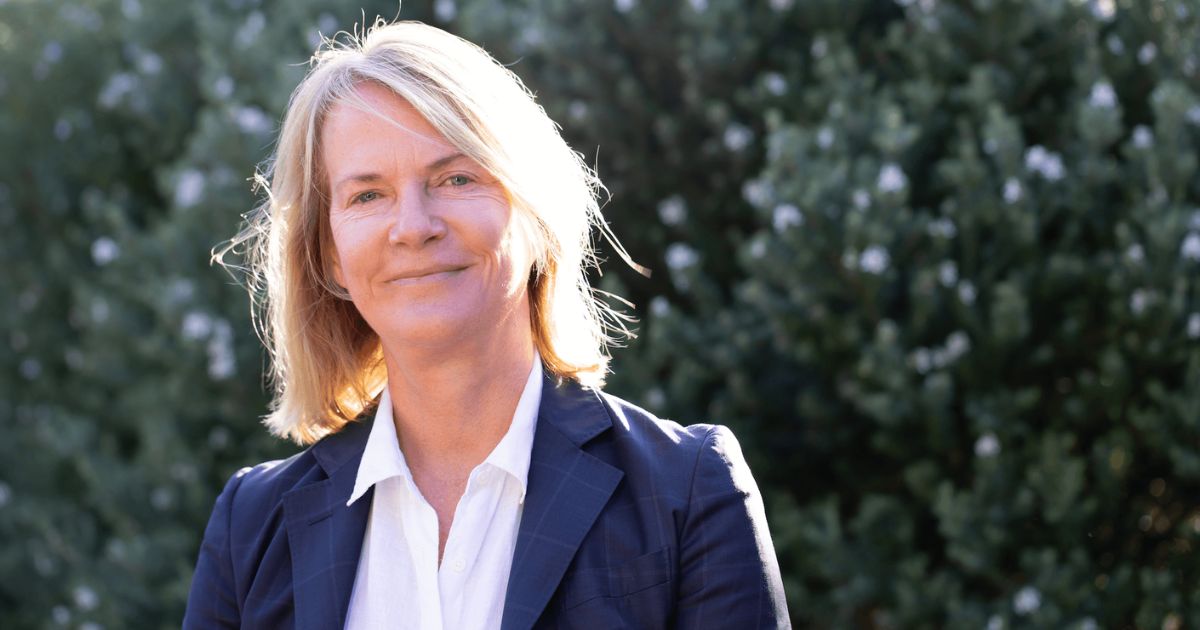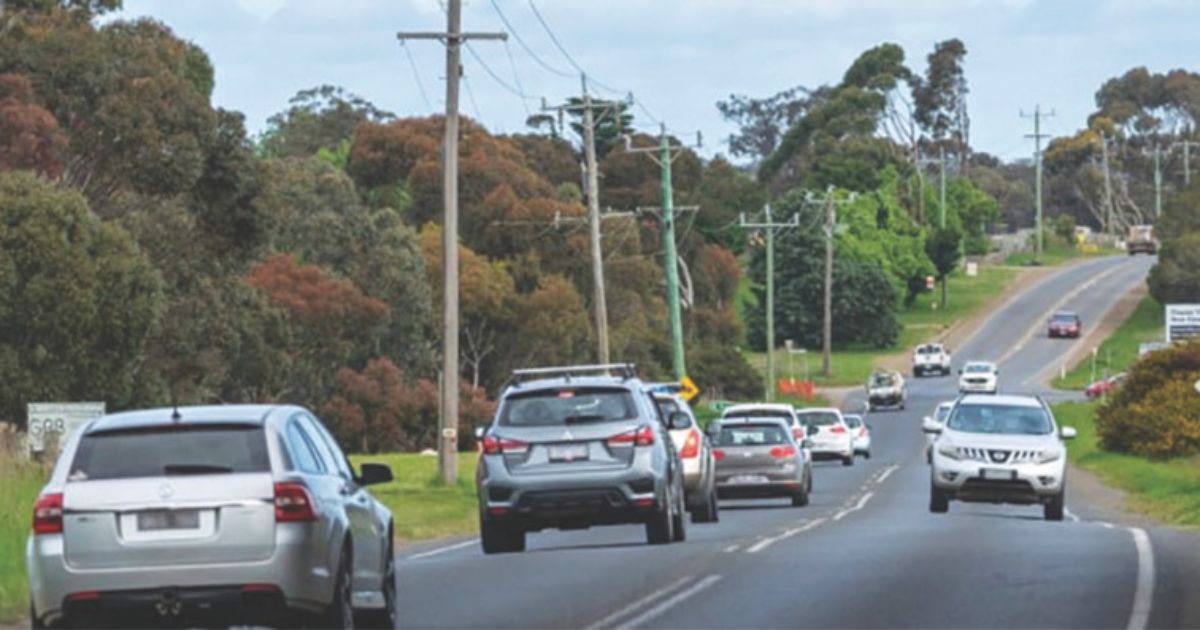Letters To The Editor – October 11, 2018
Have your say on our roads?
Dear Editor,
Moriac Community Network (MCN) is advocating for better services and infrastructure in the rural hinterland.
The condition of rural roads has been a big issue for MCN.
The Surf Coast Shire’s Road Management Plan sets out “reasonable intervention levels” for roads, and the timeframes for the shire to respond to defects. Only defects that exceed “stated intervention levels” are addressed.
The shire is proposing minor changes to the Road Management Plan, and has invited the community to make submissions on the changes.
This is a great opportunity to have a say on whether the shire’s proposed changes meet community expectations. Are these changes adequate and is their service reasonable? The more feedback the shire receives, the more chance we have of being heard.
You don’t need to be an expert on road management to make a submission, and a submission can be of any length or detail. If you make a submission, you can also ask to attend a meeting at the shire to present your ideas to councillors.
To read the shire’s Road Management Plan and make a submission, visit the shire’s website at surfcoast.vic.gov.au/About-us/Your-Say/Road-Management-Plan-review. Submissions can be made until November 1.
If you need any help making a submission, MCN contact details are on our website at mcn.org.au/about-us.html.
Carrie Vanderpol
President Moriac Community Network
Road safety sledge
Dear Editor,
It’s great to see that a Matthew Guy state government will live up to a road safety pledge (“Liberals pledge $1 million to fix dangerous intersection if elected”, Bellarine Times, September 27).
The Liberals put up Simon Ramsay. Didn’t he just blow three times over .05?
Great example of road safety.
Norm Buckley
Barwon Heads
An appalling depth
Dear Editor,
Peter Rees (“Setting sail with the facts”, Letters, October 4) has stated that readers should decide who is telling the truth about the people who have been held, at the pleasure of the Australian government, on Nauru for the past five years.
My first response was to challenge him to a public debate.
The one proviso would be that all ideas presented must be referenced to actual, documented information from credible sources.
But what an appalling depth our nation sinks to when arguing about whether sick and dying children should be brought to Australia for treatment, becomes some kind of sport.
Linda Cusworth
Bannockburn
Stack could become a beacon
Dear Editor,
As the dust settles over the Alcoa site and the debris is scooped up and carted away, Anglesea townspeople have the chance to hatch their own species of Phoenix to rise from the rubble.
The new creation should complement the intrinsic values of the town.
Anglesea is home to a variety of artists working in different genres and this could be reflected by calling for artistic ideas to be incorporated into the area, and to transform the smoke-stack into our own distinctive beacon. This beacon could overlook a native garden enhanced by sculptures created from the steel skeleton of the powerhouse.
Walking tracks could lead to a picturesque lake with water-based activities (which in times of need could be a source of water for aerial firefighting and maybe save the town).
This land could transition into something to encourage tourists to stop off in Anglesea.
To view the new-look tower – a symbolic relic of a company that once provided steady employment in town, and to enjoy all the artistic and reclaimed natural wonders of this unique environment.
Melva Stott
Anglesea
That pang of gambling guilt
Dear Editor,
That pang of guilt you feel when running late for a child’s school concert.
The dread of having to explain to a partner that there’s not enough money for treats this week, like dinner out or a movie. Or that sick feeling in your stomach when a piece of work doesn’t live up to a manager’s expectations.
Each of these examples may signify a gambling-related harm, the effects of which could be considered minor if experienced in isolation or as a one-off, but that can also easily escalate.
During Victoria’s inaugural Gambling Harm Awareness Week (8–14 October), the Victorian Responsible Gambling Foundation is encouraging communities to participate in at least one of more than 50 local activities taking place throughout the state under the banner of “TALK. SHARE. SUPPORT”.
Family and relationship problems, emotional and psychological issues, financial losses, and work or study-related difficulties are harms commonly experienced by individuals who gamble in a risky way, but also affect others, including family members, friends and workmates.
Community discussions are a vital first step in reducing or even preventing gambling harm because talking openly about harm, in general, makes it easier for people who have been affected to share their personal experiences and okay for those currently affected to reach out. About one in five Victorians experiences gambling harm every year, which means it’s an issue for us all. Let’s tackle it together.
For more information, visit responsiblegambling.vic.gov.au/harmweek or share your thoughts on social media using #GamblingHarm or #TalkShareSupport.
If you or someone you know is experiencing gambling harm, free and confidential professional support is available by calling Gambler’s Help on 1800 858 858 (24/7) or visiting gamblinghelponline.org.au.
Louise Glanville
CEO, Victorian Responsible Gambling Foundation
Inaccurate article
Dear Editor,
A local media report in late September on the Geelong Regional Library Corporation (GRLC) was an attack on one of the region’s major cultural organisations and on a number of its key staff. It showed negativity towards women in leadership roles.
GRLC’s chief executive officer Patti Manolis is the recipient of:
- The State Library of Victoria: Margery C. Ramsay Scholarship 2003 for a Study Tour of Library and Information Services in East Timor
- The Bill and Melinda Gates Foundation: Selected as the only Australian participant to the inaugural 2011 International Network of 20 Emerging Library Innovators.
She was admitted to the Victorian Honour Roll of Women on March 7, 2016 for her exceptional work in public libraries at a local, state, national and international level.
Under her leadership, the GRLC has undergone a transformation that delivers innovative, high quality, contemporary and sustainable library services covering four Local Government Authorities.
Events and Programs Manager Maryanne Vagg’s inclusion in the UNESCO City of Literature exchange program is a significant achievement to be applauded.
The GRLC has been recognised by the Municipal Association of Victoria with the prestigious award of best performing library in the State since 2013. The article was misleading and inaccurate.
Yvonne Adami
East Geelong
Mental health needs to be taken seriously
Dear Editor,
I met a young man a few years ago, a student at the time, who had started to turn his life around and was enjoying and attending school regularly.
On the outside, he was a healthy teenager who just had some trouble engaging at school, I didn’t recognise the pain he was starting to suffer.
This young person moved away from our services at Youth Off The Streets and to another city. Gradually he became overwhelmed by an intense internal trauma, he fell into abusing alcohol and committed suicide one night when he was drunk.
I attended this young man’s funeral soon after he died and heard the most gut-wrenching story from the father’s partner: the boy had also lost three of his brothers to suicide.
October is mental health month and this year we are asked to share the journey for better mental health and wellbeing. What I want to share with you is one of the reasons I think we should take mental health so seriously.
These days mental health issues are far too common, particularly in young people.
Issues of anxiety, depression, schizophrenia and many more plague some of our most vulnerable people.
Sadly, not enough people get help with these issues which often extend from some form of abuse, and those that don’t get help addressing their health often go on to suffer from further disadvantage, a life of crime or spiral downwards into alcohol and other drug abuse.
It can be easy to tell when someone is not physically healthy and it can be easy to miss signs that someone you care about is struggling, but we need to take those extra steps to help our friends, family, colleagues and anyone else in your life.
Father Chris Riley
CEO and Founder at Youth Off The Streets
Are you taking steps to reduce your stroke risk?
Dear Editor,
Some say it takes 21 days to form a habit. If that’s the case, Aussies who started to make small changes to reduce their stroke risk during National Stroke Week (in early September), will be well on their way to a healthier future.
On behalf of the Stroke Foundation, I would like to congratulate these people and all who helped spread the stroke prevention message during Stroke Week 2018. Keep up the great work!
I also want to take the opportunity to say it is not too late to make some simple changes to your daily routine which would make a positive difference to your health and potentially even save your life.
Stroke is a devastating disease which can change lives in an instant, but 80 per cent of strokes are preventable by managing blood pressure and cholesterol and living a healthy lifestyle.
During National Stroke Week, with the help of thousands of incredible volunteers right around the country, we shared our five tips for a healthy life and a reduced stroke risk – stay active, eat a healthy, balanced diet, drink alcohol only in moderation, quit smoking and make time to see your doctor for a health check.
There will be around 56,000 strokes in Australia in 2018. Stroke attacks the brain, which controls our movements, speech, understanding and emotions.
It can strike anyone at any age, but can largely be prevented if we act now. There is no time to waste.
I urge you to stop reaching for the salt or sugary drinks, walk an extra block to work or take the stairs instead of the lift. These small steps can go a long way to reducing your stroke risk.
Stroke does not just impact an individual, it affects family, friends and colleagues too. I urge you to act now to prevent stroke, for yourself and your loved ones. The power is yours.
Sharon McGowan
CEO, Stroke Foundation


















